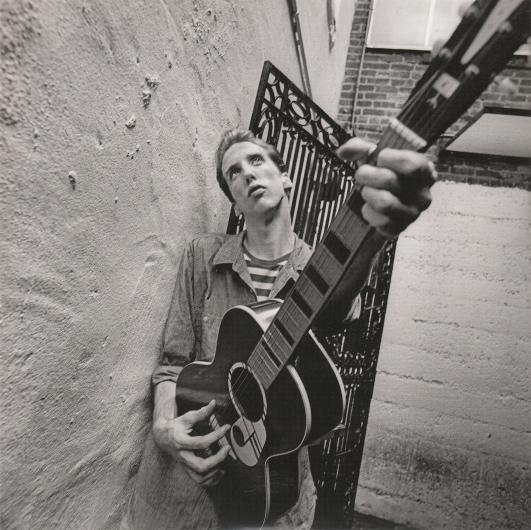Nightwork – Atlas Sound Live @ Neumos [2.28.12]
A review of the recent Seattle performance by Deerhunter frontman, Bradford Cox as his solo project Atlas Sound. Live @ Neumos.

Atlas Sound
Neumos
Seattle, Wa
2/28/12
Atlas Sound is interesting because it is essentially a counterpoint to Bradford Cox’s other role as frontman of Deerhunter. On record, the differences between the two projects is slight; and many Atlas Sound songs would dovetail quite well with the more subdued moments on Microcastle and Halcyon Digest, the band’s latest albums. Yet in a live setting, these nuances are magnified. As the frontman for Deerhunter, Cox seems to define his music by its relation to, and subversion of, the well-worn tropes of rock music. I recall a Deerhunter show in 2010 that began with Cox announcing, “We’re just some good ol’ boys from Georgia who like to play rock’n’roll” before launching into a loose, spaced-out effects-laden jam -probably the last thing one might expect “some good ol’ boys” to put out.
At the Atlas Sound show at Neumos the other night, Cox was just as eager to play with the expectations of a “solo” show. If Deerhunter is really Cox’s take on southern jam-rock, then Atlas Sound is his portrayal of the folkie balladeer, except with tape loops and a shit ton of space-age effects. Armed with a harmonica and a Gibson acoustic guitar -the weapons of choice for generations of singer/songwriters- Cox played material from his latest album, Parallax, with the title track appearing early in the set. Yet, it was clear that Cox had bigger ideas for conveying his songs than plaintively strumming a guitar. He channeled his guitar and vocals through numerous effect pedals while looping guitar parts and adding harmonies. On occasion, he overdubbed bass parts with a sweet vintage teardrop bass guitar and drummed along to his loops on a full drum kit. Watching him stalk around the stage, as if looking for new toys to play with, it was clear that Bradford Cox has come into his own as a musician and songwriter, and that he feels confident enough to express himself through this kind of novel, obtuse approach.

Cox seems to draw a special joy from confounding traditional notions of rock’n’roll coolness and singer-songwriter sentimentalism. The Mick Rock–shot cover of Parallax shows Cox holding a retro microphone and staring in to the camera, as if challenging us to call his bluff that he hadn’t recorded a rockabilly album. Of course, the music on the release is nothing like the stylized cover art would suggest. This kind of playfulness with expectation was evident in the artist’s performance as well. During “Mona Lisa,” a jangly, uptempo track from the new album with an irresistibly catchy chorus, Bradford inserted a lengthy exploratory bridge section before delivering the goods. He introduced another song by dedicating it to occasional–Deerhunter bandmate Whitney Petty, by saying, “It’s a very sentimental song, which is weird, because she’s probably the least–sentimental person I know.”
After Cox ended his first set, the house music came on, and it seemed unlikely that there would be an encore. But the sold–out, standing-room-only crowd at Neumos egged him on, and he returned to the stage for another 45 minutes or so. “You want more?” he asked in mock disbelief. “Okay, I guess I have another two hours of looping music in me.” The encore ended with a huge, chiming guitar loop echoing throughout the club and, as the lights went up, people started to file out. A handful remained at the foot of the stage, taking stock of the bevy of effects; maybe a dozen pedals in all. There was a palpable sense of wonder that the multi-instrumentalist had produced such a colossal wall of sound, live, without the aid of computers or synthesizers. I realized then that I hadn’t given much thought to the name of Bradford Cox’s solo project, “Atlas Sound,” which just seemed to me like a typical cool-sounding-but-meaningless name for a project. However, after seeing him in concert, accompanied by nothing but a few well-chosen pieces of technology, the imagery of one man carrying a world of sound on his shoulders seems entirely appropriate.